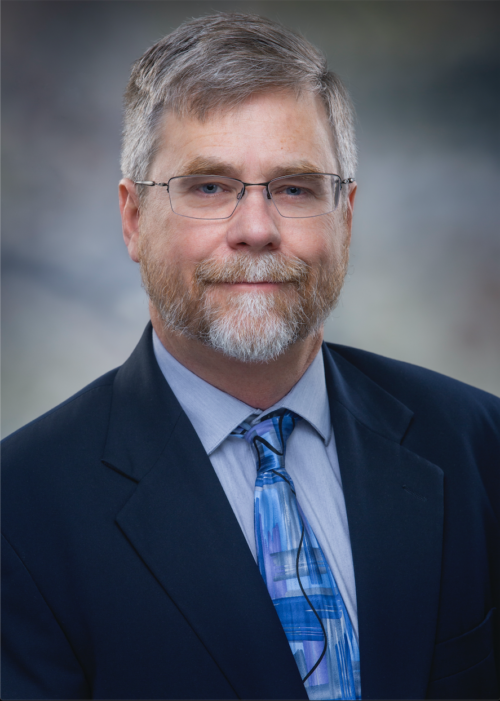
Contact
- (210) 567-3931
- berton@uthscsa.edu
Department
Microbiology, Immunology & Molecular GeneticsBerton, Michael T., Ph.D.
Deputy Chairman & Associate Professor
Personal Statement:
Associate Professor and Deputy Chair, Department of Microbiology, Immunology & Molecular Genetics; Director, Integrated Biomedical Sciences PhD Program; Scientific Director, UT Health San Antonio Flow Cytometry Core Facility
Dr. Berton’s research program focused on host cell signaling pathways that regulate innate and adaptive immune responses and the mechanisms that pathogens use to evade host immunity. His laboratory made early contributions to understanding how IL-4 and CD40 signaling pathways regulate germline immunoglobulin heavy chain gene transcription and heavy chain class switching. More recently his lab turned its attention to the role of Toll-Like Receptor signaling in regulating immune responses during infection and described novel regulatory mechanisms in TLR signaling. After directing an extramurally funded research program for 25 years at UT Health San Antonio, Dr. Berton has turned his efforts towards the administrative and educational missions of his Department and the University. He currently serves as Deputy Chair of the Department of Microbiology, Immunology & Molecular Genetics in the Long School of Medicine, Director of the Integrated Biomedical Sciences PhD Program, and as Scientific Director of the UT Health San Antonio Flow Cytometry Core Facility.
Education
1985, PhD Microbiology & Immunology University of Tennessee Center for the Health Sciences, St. Jude Childrens Research Hospital, Memphis, TN
1978, BS Biology, Rhodes College; Memphis, TN
Postdoctoral Fellowship-Immunology-University of Texas Southwestern Medical Center,
Dallas, TX
Research
&
Grants
Federal Funding Agency NIH Title Graduate Research in Immunology Program (GRIP) Status Active Period 8/2018 – Present Role Principal Investigator Grant Detail T32AI138944 – Supports annual stipend and tuition for three PhD trainees per year
Awards & Accomplishments
| Year | Awards & Accomplishments |
|---|---|
| 2018 | Faculty of the Year Award, UT Health San Antonio, Department of Microbiology, Immunology & Molecular Genetics |
| 2012 | American Association of Immunologists Laboratory Travel Award |
| 2004-2006 | Cell and Molecular Immunology A Study Section, NIH, member |
| 2004 | Executive Research Committee Research Incentive Award, UT Health Science Center at San Antonio |
| 1996-1999 | Section Editor, Journal of Immunology |
| 1988-1990 | National Research Service Award, National Institute of Allergy and Infectious Disease |
| 1985 | Sigma Xi Graduate Student Research Award, UT Center for the Health Sciences, Memphis, TN |
| 1978 | National Science Foundation Predoctoral Fellow |
| 1977 | Phi Beta Kappa |
| 1974-1978 | J.R. Hyde Scholar, Rhodes College |
Affiliations
American Association of Immunologists American Society for Microbiology International Society for the Advancement of Cytometry Association of Biomolecular Resource Facilities Mays Cancer Center, UT Health San Antonio
Publications
Tsai, S. Y., Segovia, J. A., Chang, T. H., Morris, I. R., Berton, M. T., Tessier, P. A., Tardif, M. R., Cesaro, A. and Bose, S. DAMP molecule S100A9 acts as a molecular pattern to enhance inflammation during influenza A virus infection: role of DDX21-TRIF-TLR4-MyD88 pathway. PLoS Pathogens 10:e1003848, 2014. Rodriguez A.R., Yu J.J., Murthy A.K., Guentzel M.N., Navara, C.S., Klose K.E., Forsthuber T.G., Chambers J.P., Berton M.T. and Arulanandam B.P. Mast cell toll-like receptor 2 signaling is crucial for effective killing of Francisella tularensis. J. Immunol. 188:5604-11, 2012. Medina, E. A., I. R. Morris, and M. T. Berton. PI3-kinase activation attenuates the TLR2-mediated macrophage proinflammatory cytokine response to Francisella tularensis LVS infection. J. Immunol. 185:7562-7572, 2010. Abplanalp, A. L., I. R. Morris, B. K. Parida, J. M. Teale, and M. T. Berton. TLR–dependent control of Francisella tularensis infection and host inflammatory responses. PLoS ONE 4:e7920, 2009. Linehan, L. A., W. D. Warren, P. A. Thompson, M. J. Grusby and M. T. Berton. STAT6 is required for IL-4-induced germline Ig gene transcription and switch recombination. J. Immunol. 161:302-310, 1998. W. D. Warren and M. T. Berton. Induction of germline g1 and e Ig gene expression in murine B cells: Interleukin 4 and the CD40 ligand-CD40 interaction provide distinct but synergistic signals. J. Immunol. 154:4513-4525, 1995. Berton, M. T. and Leslie A. Linehan. IL-4 activates a latent DNA-binding factor that binds a shared IFN-g and IL-4 response element present in the germline g1 Ig promoter. J. Immunol. 154:4513-4525, 1995. Berton, M. T. and E. S. Vitetta. IL-4 induces changes in the chromatin structure of the g1 switch region in resting B cells prior to switch recombination. J. Exp. Med. 172:375-378, 1990. Berton, M. T., J. W. Uhr and E. S. Vitetta. Synthesis of germline g1 transcripts in resting B cells: Induction by interleukin-4 and inhibition by interferon-g. Proc. Natl. Acad. Sci. (USA) 86:2829-2833, 1989. Berton MT, Webster RG. The antigenic structure of the influenza B virus hemagglutinin: operational and topological mapping with monoclonal antibodies. Virology 143(2):583-594, 1985. Berton MT, Naeve CW, Webster RG. Antigenic structure of the influenza B virus hemagglutinin: nucleotide sequence analysis of antigenic variants selected with monoclonal antibodies. J Virol 52(3):919-927, 1984.
